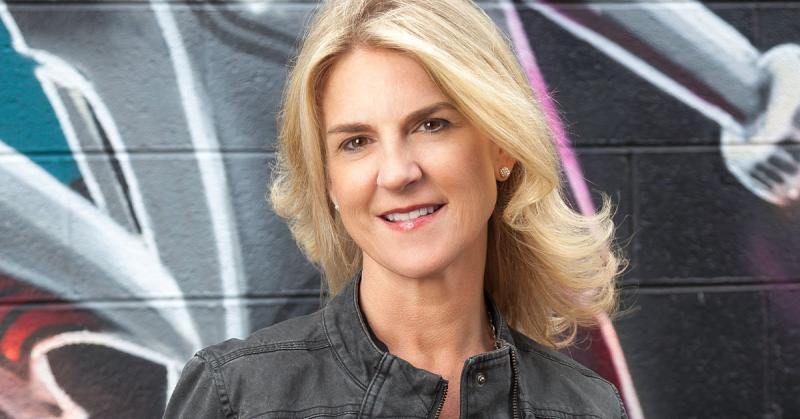Transforming Youth Mental Health Care
Recent MSW grad Laura Love is working to transform emergency youth mental health care from being traumatic to healing

Content warning: This article includes mention of youth suicide. If you or a loved one are having suicidal thoughts, call or text 988.
When she entered the University of Denver Graduate School of Social Work (GSSW) Denver Campus MSW program two years ago, Laura Love was in her 50s and already had a master’s degree in journalism and a thriving career as a founder of a Denver-based marketing communications agency. However, a personal tragedy had transformed her longtime passion for promoting youth mental health into a drive to change the mental health system itself.
Love lost her 14-year-old son, Sam, to suicide in May 2023. According to Love, the mental health system intended to help kids like Sam can often be more traumatic than healing and negative experiences — particularly in emergency care settings — may prevent people from seeking help. She explains that kids experiencing a mental health crisis “have to go into a mental health room that feels like a psych hospital, and they feel like they did something wrong. If we can make those spaces really healing and supportive, kids won’t be resistant to coming back because their experience isn’t terrifying.”
Love graduated from GSSW this spring with an MSW specialization in Mental Health. She will continue her strategic communications and marketing work at GFM Center Table, the agency she founded nearly 25 years ago. “For my strategic communications work, I have a different lens than I ever had before” — a perspective she believes will benefit her clients. Love also plans to work part time with adult clients in a clinical setting and will consult with hospital, health and mental health care systems as well, leveraging her own lived experience and clinical viewpoint to help transform those systems.
According to Love, the lived experience perspective of patients and families is often missing when administrators design youth mental health programs and policies. “To work with them as someone who has journeyed through the system with a child, coupled with the macro experience, is unique.” Positive changes could include things like using trauma-informed language and designing physical environments that are supportive, trauma informed and help children to heal.
Love brought that vision to life during her MSW fieldwork. She began her concentration-year internship in clinical social work at Blue Channel Therapy, where she became certified in EMDR (Eye Movement Desensitization and Reprocessing). She then completed an independent study at the Children’s Hospital Colorado Pediatric Mental Health Institute, where she conducted research and interviewed key stakeholders to identify gaps in emergency and acute mental health care. GSSW supported Love in turning that research into action, allowing her to complete her field education at the institute, where she partnered with hospital leadership to develop a volunteer program supporting families in the Mental Health Emergency Department, design trauma-informed furniture and materials, and introduce psych-safe comfort items like weighted blankets and sensory toys.
When she started the MSW program, Love didn’t know exactly where it would lead. Now, she says, “The work I’ve been able to participate in as part of this MSW has given me an ability to see systems change as a possibility.”




